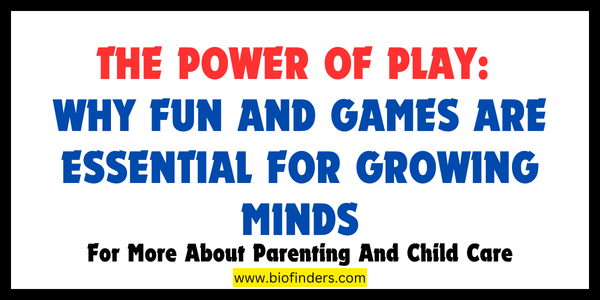For many parents, playtime can feel like a break from the seriousness of raising a child. But what if we told you that playtime is actually crucial for your child’s development? It’s true! From building cognitive skills to fostering social connections, playtime is the language of childhood, and it shapes your little one in profound ways.
The Many Benefits of Playtime
Playtime isn’t just about having fun (although that’s certainly a perk!). Here’s a peek at the incredible ways play benefits your child’s growth:
- Cognitive Development: Through playtime, children experiment, explore cause-and-effect relationships, and solve problems. Building with blocks, sorting toys, and putting together puzzles all stimulate critical thinking and problem-solving skills.
- Social and Emotional Development: Play provides a safe space for children to practice social skills like cooperation, communication, and conflict resolution. Pretend play, for example, allows them to take on different roles, express emotions, and develop empathy for others.
- Physical Development: Playtime is a time for movement and exploration. Running, jumping, climbing, and dancing help with gross motor skills, while activities like playing with blocks and finger painting work on fine motor skills. Play also helps children develop good coordination and balance.
- Language Development: Play allows children to practice new words and communication skills. Songs, rhymes, storytelling, and conversations during play all contribute to vocabulary development and language fluency.
- Imagination and Creativity: Play is where imagination takes flight! Children can be anything they want to be and create their own worlds. This fosters creativity, innovation, and the ability to think outside the box.
Making Time for Play in Busy Lives
In today’s fast-paced world, it’s easy for scheduled activities and screen time to crowd out playtime. But remember, prioritizing play is an investment in your child’s future. Here are some tips to incorporate more play into your daily routine:
- Let Go of Structure: While some structured activities can be beneficial, unstructured playtime allows your child to take the lead and explore their interests.
- Embrace Open-Ended Toys: Toys that encourage creativity and imagination, like blocks, dolls, and dress-up clothes, offer endless possibilities for play.
- Get Down on Their Level: Join in on their play! Building forts, having tea parties, or simply engaging in their imaginary world strengthens your bond and fosters communication.
- Turn Errands into Adventures: Incorporate play into everyday tasks. Make grocery shopping a treasure hunt, or turn a car ride into a singing session.
- Limit Screen Time: The American Academy of Pediatrics recommends no screen time for children under 18 months, and limited time for older children. This frees up more time for imaginative play.
Play Ideas for Different Ages and Stages
Here are some specific ideas to get your child’s playful juices flowing, categorized by age group:
Babies (0-18 months):
- Tummy time and peek-a-boo games stimulate motor skills and social interaction.
- Sing songs and recite rhymes to expose them to language.
- Offer safe and textured objects for them to explore with their senses.
Toddlers (18 months – 3 years):
- Engage in pretend play: have tea parties, play doctor, or build a fort together.
- Provide opportunities for sensory play with water, sand, or play dough.
- Sing action songs and dance to encourage movement and coordination.
Preschoolers (3-5 years):
- Play board games and simple card games to build social skills and turn-taking.
- Read stories together and encourage them to act out the scenes.
- Get creative with arts and crafts activities like painting, drawing, and building with blocks.
School-Aged Children (6-12 years):
- Encourage outdoor play like bike riding, tag, or playing catch.
- Organize dramatic play sessions where they can write and perform short plays.
- Plan playdates with friends to build social skills and teamwork.
Remember, play is a joyful experience for both you and your child. Embrace the laughter, silliness, and mess that come with it. By prioritizing play, you’re nurturing your child’s development and setting them up for success in all areas of life!
pen_sparktunesharemore_vert






Leave a Reply